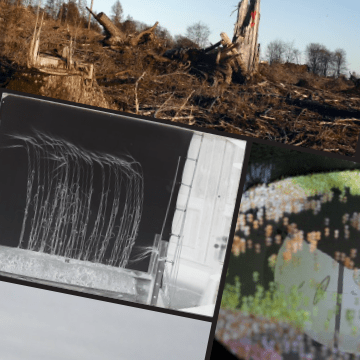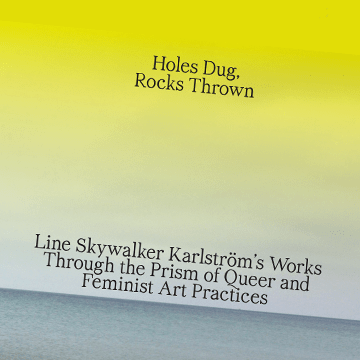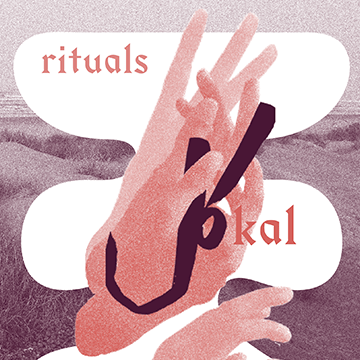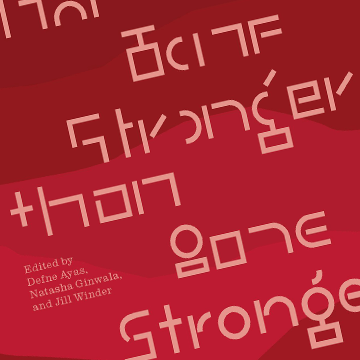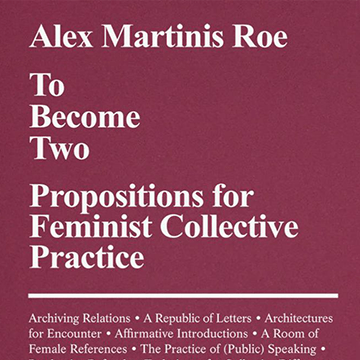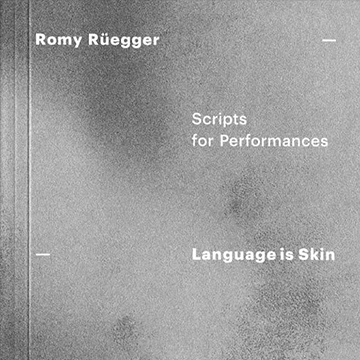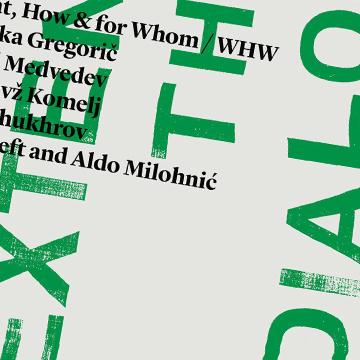Text in Public – Zine Performances and Rants is the first monograph of writing by visual artist Emma Wolf-Haugh interconnecting performative works, performance scripts and assemblage texts.
Tag: feminism
Contested Landscapes
Contested Landscapes is dedicated to different rural regions—their landscapes, their producers, and their work. The paths of the family of the artist Sandra Schäfer and those of the famous German photographer August Sander cross in the Westerwald, a rural area in Germany shaped by farming and mining.
Holes Dug, Rocks Thrown
'Holes Dug, Rocks Thrown' is the first comprehensive presentation of the artist Line Skywalker Karlström's work. It documents a practice, that over a period of more than twenty years have been committed to 'queer feminist world making' using a performative and embodied approach.
The Many Headed Hydra Magazine #4
The first in a series of publications emerging from the transoceanic platform a language where yesterday and tomorrow are the same word. Kal, kal RITUALS proposes queer and trans feminist ecologies, embodiments and mythmaking.
Helke Sander: I like chaos, but I don’t know, whether chaos likes me
Die monografische Publikation „Helke Sander: I like chaos, but I don’t know, whether chaos likes me“ umfasst Texte aus „Frauen und Film“, der ersten feministischen deutschsprachigen Filmzeitschrift, die 1974 von Helke Sander gegründet und herausgegeben wurde. Die für die Publikation ausgewählten Texte fokussieren zentrale Fragestellungen der feministischen Filmarbeit, ökonomische sowie recht-liche Bedingungen und vor allem deren strukturelle Bedingtheit in gesellschaftlichen Verhältnissen und ihre radikale Kritik daran.
Stronger Than Bone
Stronger than Bone draws upon the embodied strength, intuitive desires, and collective wisdom of feminists and non-binary protagonists to foreground the manifold dimensions of feminist politics and commitments. Written by thinkers and allies across generations with a focus on heterogeneity, intersectionality, and influence across geographies, this reader arrives into the world at a moment of heightened fragility, under the shadow of the coronavirus pandemic.
To Become Two
To Become Two: Propositions for Feminist Collective Practice offers a narrative of artist Alex Martinis Roe’s research into a genealogy of feminist political practices in Europe and Australia from the seventies until today. These practices include those of the Milan Women’s Bookstore co-operative; Psychanalyse et Politique, Paris; Gender Studies (formerly Women’s Studies) at Utrecht University; a network in Sydney including people involved in the Sydney Filmmakers Co-operative, Feminist Film Workers, Working Papers Collective, and the Department of General Philosophy at Sydney University; and Duoda – Women’s Research Centre and Ca la Dona, a women’s documentation centre and encounter space in Barcelona.
Language is Skin
Overlapping every day observations with archival material, confronting, jumping. Figures that intervene – interruptions into the reproduction and maintenance of colonial poison cabinets and patriarchal canons. Histories of involvement. The folding of histories. Entangling feminist fictions. Taking care of. Trouble, always trouble.
Extending the Dialogue
The authors whose writings appear in this book come from twelve different countries and represent a range of disciplines and interests: they are art historians, philosophers, cultural theorists and activists, critics, curators, and poets, with most of them falling into at least two or three of these categories. All have made important contributions to contemporary art and cultural production, art history writing, and critical thought within, and sometimes far beyond, the region once known, problematically, as ‘Eastern Europe.’

